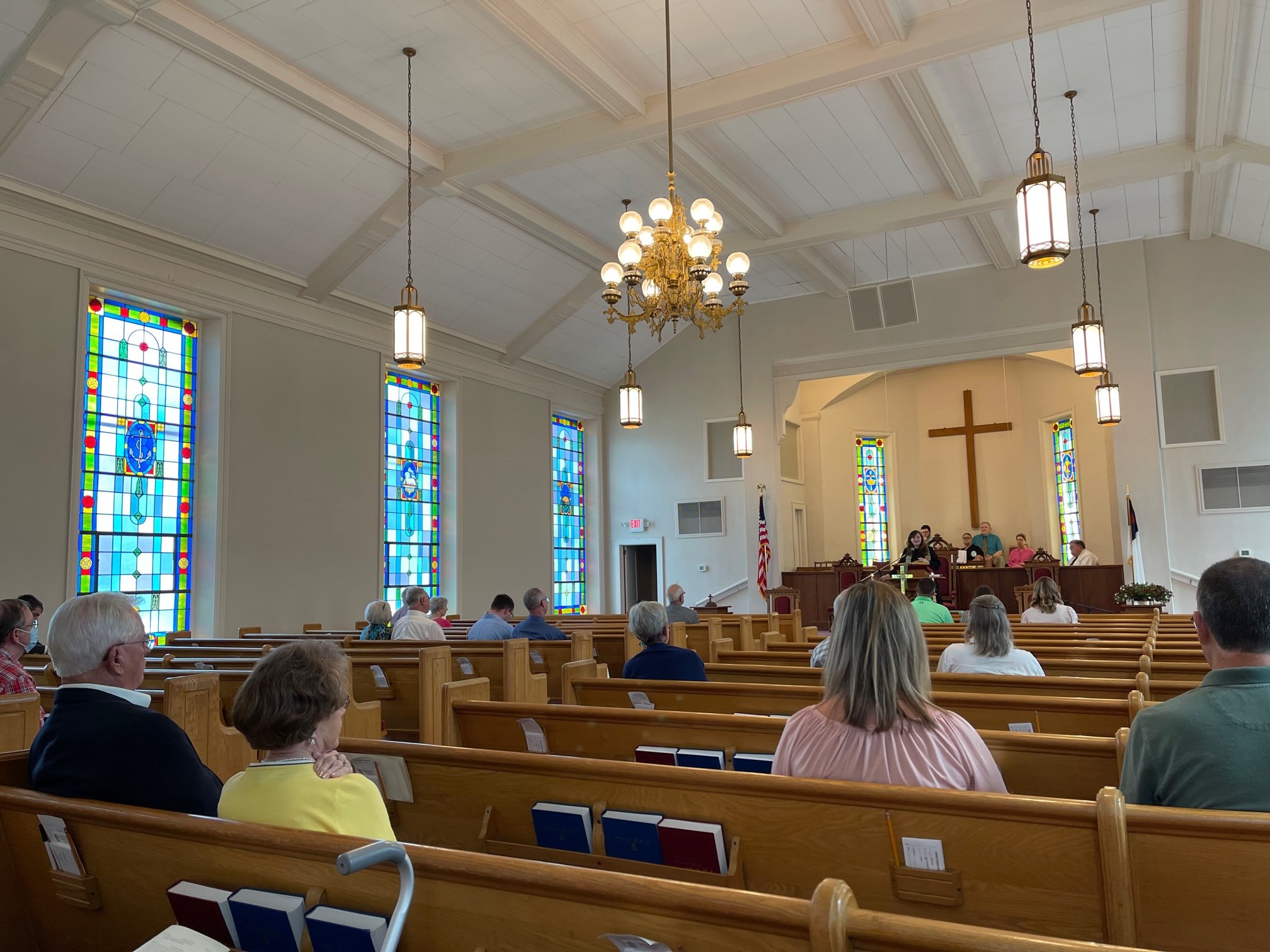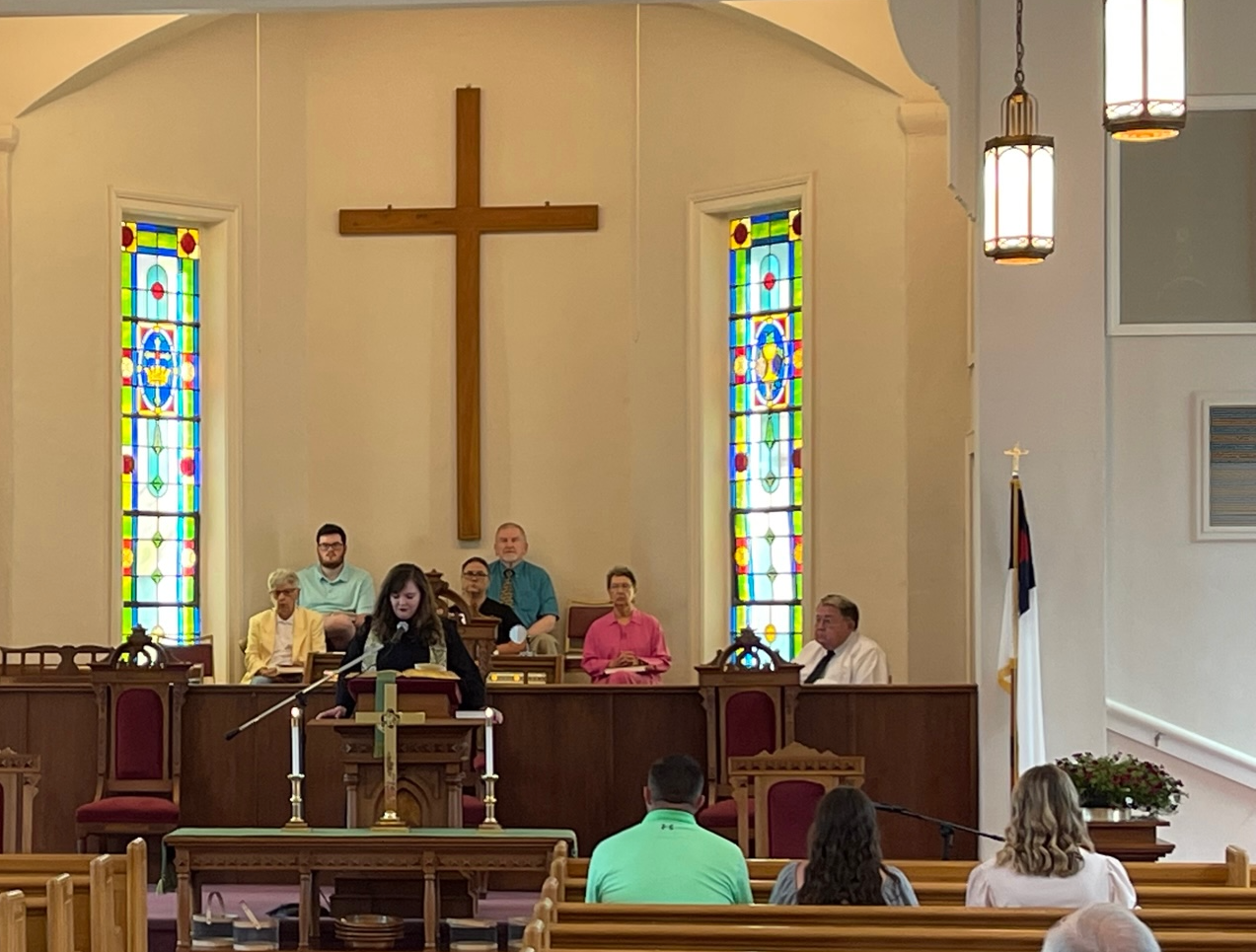
Worship
Listen Online
While we don’t livestream at this time, we do offer recordings of sermons. Feel free to listen along with us.
Worship on Sunday mornings is the heartbeat of Cross Roads. As we do our best to love and serve the Lord, worship grounds us, renews us, sustains us, and spurs us on in our Christian life.
At Cross Roads, we root ourselves in traditional worship, linking ourselves with the church past, present, and future. At the same time, we are always wondering where the Spirit is leading us next.

-
Liturgy
From the Greek λειτουργία meaning “work of the people,” liturgy is how we order our worship and our time within the Christian day of worship and calendar.
At Cross Roads, we keep to a more traditional liturgy. You will find echoes of it across denominations, and if you were to go back in time to the earliest church, you’d see elements of it there, too. It’s one of the ways we connect with the people of God past, present, and future.
Each piece of the liturgy means something to us. The Prayer of Confession means we can be honest with the hurts we have felt and we have dealt. The Assurance of Forgiveness declares that God’s grace is more than sufficient. Each moment of worship has a purpose, to connect us more fully with our Creator.
Children in Worship
Children are welcome in worship! We include a children’s sermon and have special bags for our younger friends. Our nursery is not regularly staffed, as most of our young friends are three and up, but if you let someone know when you arrive, we have members ready to volunteer. That said, we believe baby cooing to be the holiest noise!
First Time? Questions?
What should I wear?
Whatever you’d like! We’re not picky. My (Pastor Kate) general rule of thumb is “feel good” about what you come to church in, whether good means “comfy” or “spiffy” or “Sunday best.” God loves you as you are, and so do we.
Where am I going once I get there?
When you make it to the church, Sunday worship meets in the Sanctuary. You can go through the big front door you see from the street, or one of the entrances from the parking lot. In those cases, once you’re inside, turn right and keep going, you’ll either find the Sanctuary or someone who will guide you there.
If you came for Sunday School or a special event (or breakfast) in the Fellowship Hall, head left from where you face the building from the parking lot. The Fellowship Hall is the leftmost room and the Sunday School room is in the middle of the hallway.
What is your COVID protocol?
At this time, we don’t have an official one. As you can see from our photos, we sit spaced out. We also have KN-95 masks available in the narthex (front of the Sanctuary) and lobby (where you enter the Sanctuary from the main building), and in general we mask up when the county level goes to “High” at the CDC’s recommendation.
What does Presbyterian mean?
Well, literally, Presbyterian refers to a “presbyter,” from the Greek word πρεσβύτερος meaning “elder” (and, fun fact, it’s the root word for “priest”). In general, denominations refer to how churches do life together, and for Presbyterians, we make decisions with a group of “presbyters” — elders.
In practice, this means we elect people from the congregation to make decisions, and the leadership of the church is split between the Minister and the Session (group of elders). This comes from our belief in the “priesthood of all believers,” meaning no one person or one office is more special than any other, simply that we are each called to particular tasks and offices in the church within the Body of Christ. We make decisions together.
It also means we are connectional, sharing our ministry and life with others in our area and denomination, supporting, challenging, and inspiring one another. For a full breakdown on what being Presbyterian means, because it’s more than a FAQ blurb can really get to, chat with Kate.
Did y’all mess up the Lord’s Prayer? Debts?
No, we did not! Some churches use Luke’s version of the prayer, which best translates to “trespass” or “sin,” but Presbyterians use Matthew’s version which translates to “debts.” Both are correct. Each one gives a slightly different taste of Jesus’ intent, doesn’t it? After all, to trespass is to cross a boundary, to violate something. Often we sin precisely like that. But debt talks about what is owed, what is borrowed, and in the context of grace having that distance, that axe dangling with what you owe — it’s a powerful message. Both prayers resume the use of the idea of “debt” in the line about “forgiving our debtors” (Matthew) and “all who are indebted to us” (Luke).



